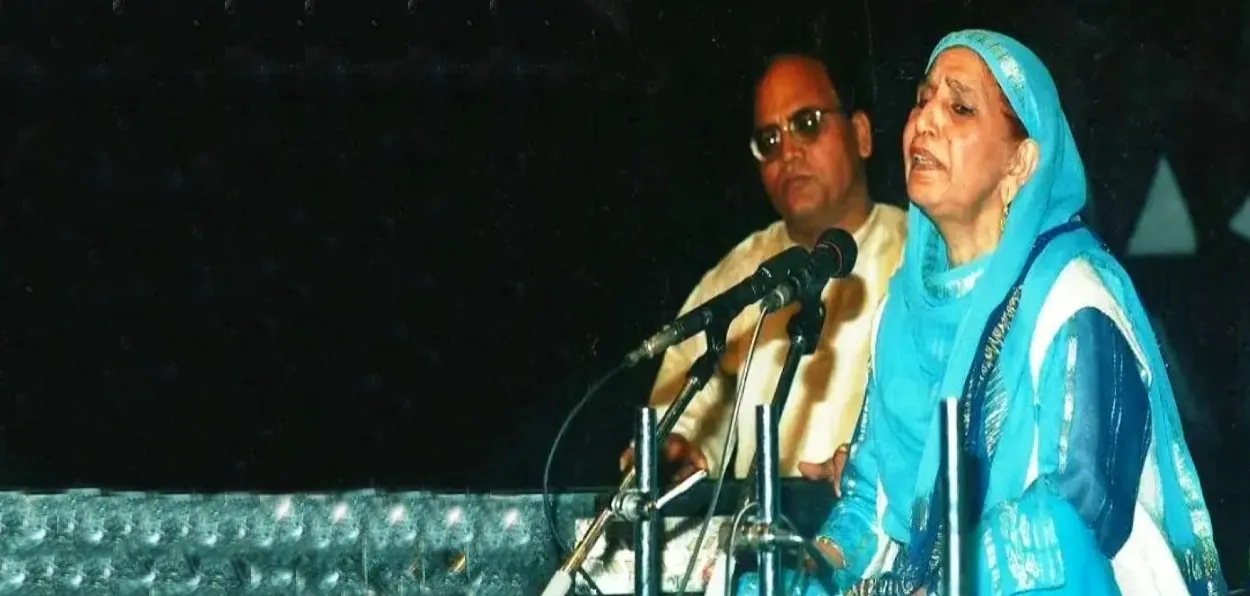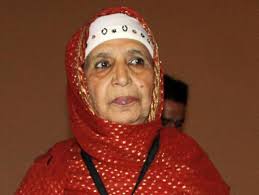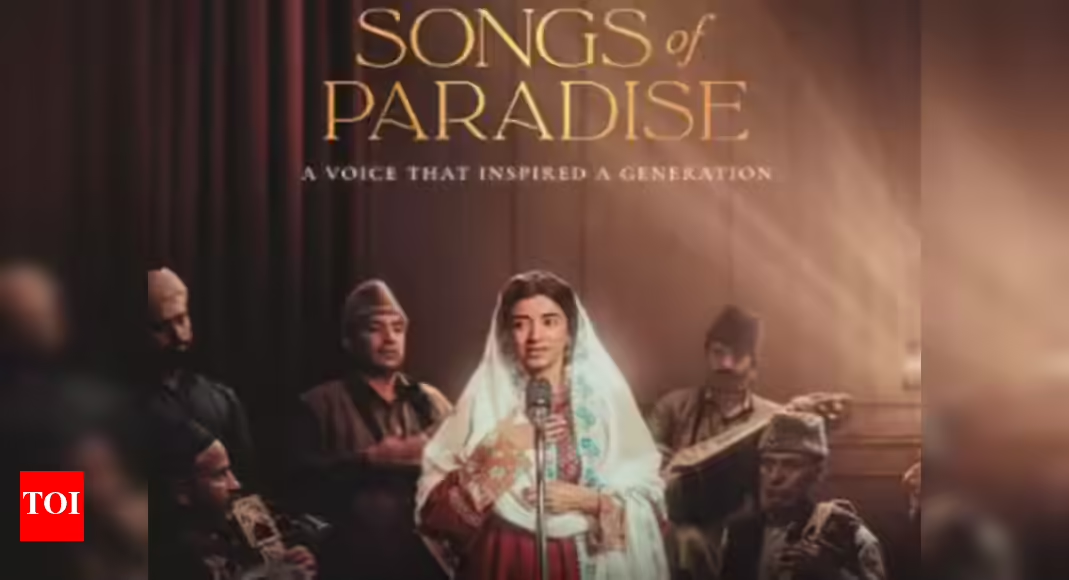
Ehsan Fazili/Srinagar
At a time when women in Kashmir were ruled by social and religious taboos and remained inside the walls of their houses, Raj Begum broke the barriers to claim her space in the dominion of the valley’s music.
At that time, Kashmir’s folk theatre was in full bloom, where men played the roles of women. They wore women’s attire to act or sing, and it continued in the second half of the 20th century. Raj Begum’s entry on the musical stage happened in the 1950s when Radio Kashmir Srinagar (AIR, Srinagar) was the epicenter of art and cultural performances, as India was growing up after Independence and the Partition.
Radio Kashmir Srinagar started working from July 1, 1948, and in the 1950s, it felt the need to discover and hone the social, cultural and artistic talent of the valley.
Its representatives carried microphones and tape recorders and moved around the villages to capture social and educational developments. The Radio also provided a platform not only for the dissemination of news but also for developing music, art, and cultural activities.

In the backdrop of this, many male artists emerged on the scene. However, there was a dire need for women artists. The hunt, in the first instance, zeroed in on Raj Begum, who, till then, was performing in marriage functions or other socials.
The credit of her entry into the scene, according to the old timers, goes to Ghulam Qadir Langoo, one of the earliest musical instrumentalists of Radio Kashmir, Srinagar.
Langoo spotted Rehti, the versatile singer, as he was passing by in a downtown lane in Srinagar, with Radio Kashmir’s quest for such artists in his mind. Thus, Rehti entered Radio Kashmir Srinagar in 1954 as a young singer, earning her identity as Raj Begum, a Kashmiri folk and light classical singer.
Her entry was a milestone as it opened the doors for women’s public performances in Kashmir.
The film, Songs of Paradise, portraying Kashmir’s first woman singer, Raj Begum, directed by Kashmiri filmmaker, Danish Renzu, and produced by Kashmiri-American Producer, Shafat Qazi under the banner of Farhan Akhtar and Ritesh Sidhwani’s Excel Entertainment, focuses on music, culture and a woman’s courage in a world that wanted her to stay silent.
The film, which is making waves in the OTT platforms ( it has been released on Amazon Prime) is not the first film on the life of the late singer.
Her life story has been portrayed at least in two earlier films, each documented by the Union Ministry of Culture and the Ministry of Information and Broadcasting.
The film on Raj Begum’s life and contributions by the Ministry of Culture, made about four years ago, opens with a scene of the young singer clad in Kashmiri ‘burqa’ followed at a distance by an elderly Kashmiri, a depiction of Ghulam Qadir Langoo, walking in a narrow downtown lane. With the burqa lifted up covering her head, the young singer is seen singing in front of the Radio microphone.
Out of her innumerable memorable songs, Songs of Paradise showcases only her eight songs have been included in the film.
While Saba Azad portrays the young Raj Begum, the elderly artist is portrayed by Soni Razdan, and the voice is lent by the young Kashmiri singer, Masrat un Nisa from Chrar-e-Sharief, to Maqbool Shah Kralwari’s verses “Dil Tchooran Hai Dil Nyoem Shaaman..….”.
 The Poster of Songs of Paradise
The Poster of Songs of Paradise
Raj Begum’s renderings by Masrat for the film have also added colours to the promising young Kashmiri girl, giving her national and global fame.
Raj Begum has been the recipient of the Padma Shree in 2002, the Sangeet Natak Akademi award in 2013, and an award from the J&K Academy of Art, Culture and Languages, among other felicitations.
Born on March 27, 1927, at Magarmal Bagh in Srinagar, she had been attending events and programmes at Radio Kashmir for many years before her death on October 26, 2016.
Those who grew in the 1960s and 70’s in Kashmir are familiar with the soulful songs of Raj Begum aired by Radio Kashmir Srinagar, which continue to be part of the daily morning programme, “Tohunz Farmaeish” (Aap ki Farmayish) on the Radio and Doordarshan Srinagar.
“She was the first woman singer whose voice was aired from Radio Kashmir Srinagar and followed by Naseem Akhtar, Zoon Begum and Mahtab Begum”, said Ustad Mohammad Yaqoob Sheikh, top grade Sufiyana artist, who began his artistic career around the time when Raj Begum was to retire in 1986.
.webp)
Raj Begum being felicitated
Sheikh, who retired from the AIR, Srinagar, early in 2020, told Awaz-The Voice that Raj Begum had been associated with the Radio during the tenure of his grandfather, Ustad Ghulam Mohammad Qaleenbaf, Kashmir’s renowned Sufiyana maestro.
Ustad Sheikh Mohammad Yaqoob said that Raj Begum and Naseem Akhtar, who sang for the radio, “faced a lot of criticism from the society”, he told Awaz-The Voice.
He described Raj Begum, who would come to the Radio Station wearing a burqa, as the most humble and affable person. “She (along with Naseem Akhtar) had a lot of contributions that will always be remembered”, he said, and the artists who followed looked up to Raj Begum as their model.
ALSO READ: Dil Chooran singer Masrat Un Nissa says she will sing only in Kashmiri
It was later that the female singers like Shameema Dev, Kailash Mehra, Sunaina Kaul, and Arti Tickoo came on the scene.
